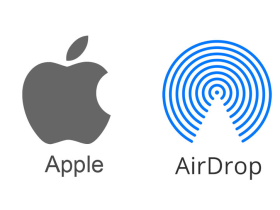According to recent estimates, 0.023 percent of the world’s money is now made up of cryptocurrency. The world’s money system still works. A lot of people see crypto as a 21st-century pyramid plan, in part because of people like Sam Bankman-Fried and others. It was a hype machine for the tech world.
The Artificial Intelligence (AI) industry is not a pyramid plan and can actually be very good for business and people. However, all the excitement right now could stop progress instead of speeding it up. Some lessons could be learned from the crypto bros’ and other tech companies’ hype, such as Theranos.
How the Artificial Intelligence Industry is Harming Its Industry
The simple solution is to overpromise and underdeliver. A surefire path to frustration and disappointment. However, the grandstanding, chest-thumping cacophony of self-proclaimed “experts” with six months of business experience is only a symptom.
On X, there is a daily deluge of proclamations about the redemption of AI given with the zeal of a sideshow hustler. PowerPoint is no longer in use. Excel has died. The email has died. This, that, and the other job are all gone. Except that none of this is even remotely accurate.
In the history of our industrialized society, no technology has ever caused anything to perish in a single day, month, or year. Humans were not the ones who lost the most jobs as a result of automobiles. It had to do with horses. Around 20 million people. Many more people were hired as factories expanded. This took decades to play out. Not months or weeks.
Digital technology optimism is nothing new, but the fever pitch of AI hype is unprecedented. When reality sucker hits a promoted technology in the gut, the challenge arises. When the market wants evidence and there is none to be found, we get disillusioned.
The turmoil surrounding Sam Altman’s unceremonious dismissal from OpenAI harmed the industry. Already, there is a schism between those who continue regardless and those who advocate for gradual progress.
But what about the masses, 99.5% of consumers and citizens? They only grasp the buzz and the headlines about AI. This is not unique to AI. Most smartphone users probably use less than a third of the functionality provided.
It also doesn’t assist the AI sector when Silicon Valley’s elite make unequivocal pronouncements of Libertarian aims in manifestos that show little concern for the human situation. All of these factors combine to harm the AI sector rather than promote it.
Microsoft is a great example of how to do things correctly. They’ve included Generative AI (GAI) tools into their product suite. They integrated ChatGPT into Bing, allowing users to experiment with it. This is essential. One of the ways humans select how to adapt technologies is through play.
Apple is another example of doing things well. They might have easily taken advantage of the buzz. They haven’t. Apple understands how humans interact with technology. People go through a constant, periodic process of updates as their software and technology evolve, particularly macOS and iOS. Too much change, too rapidly, and culture reverts. Hard.
AI businesses have leaned far too heavily on a hype machine, making grandiose claims with no proof to back them up. They’ve simply sown suspicion and anxiety. That’s not exactly a sales strategy.
These AI firm CEOs’ calls for regulation have been exposed for what they were: a tactic to build moats around themselves, rather than any altruistic concern for humanity. This, yet again, harms their cause. The hype is also to catch capital in a feeding frenzy as ferocious as sharks gone mad.
AI is one of the most significant technologies that humanity has invented. It is, like other technologies, a two-edged sword. The disadvantages may be more severe than those of previous technologies, but the benefits are equally significant.
However, perhaps the over-hype of AI will turn out to be a boon rather than a curse for the industry. People will reject the messages and tune them out as a result of widespread disenchantment. Businesses will be increasingly suspicious and leery of the hype. Their subsequent tool adoption was more measured.
While it is impossible to foresee how this will all play out, we can see early symptoms of citizens becoming tired of the hype and rising disillusionment. For the time being, all we can tell is that there will be a commotion.
The Wall AI Is Going to Fall Into
Without a doubt, the hype machine will continue uninterrupted. But that will soon sound like the dog always pleading at the back door to be let in, only to be ignored. We can see this today with the steady influx of new cryptocurrencies being released through digital platforms.
The crypto declarations fall on deaf ears. People have been educated to dismiss the crypto frenzy. We dismiss banner advertising and most other things that are pressed upon us in the same way. Crypto has reached a brick wall of social rejection. If the AI business is not careful, it will also run against this barrier. Perhaps even more difficult.













good